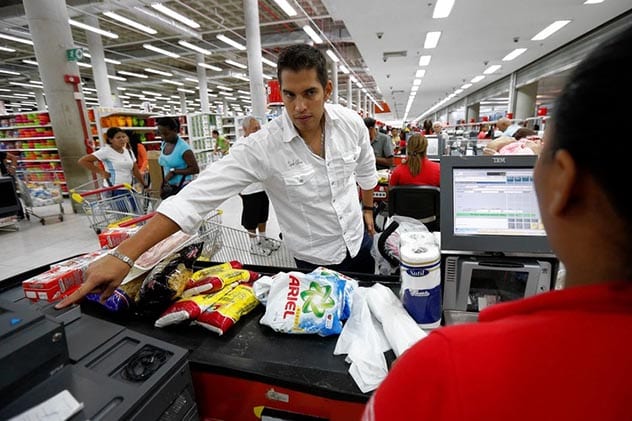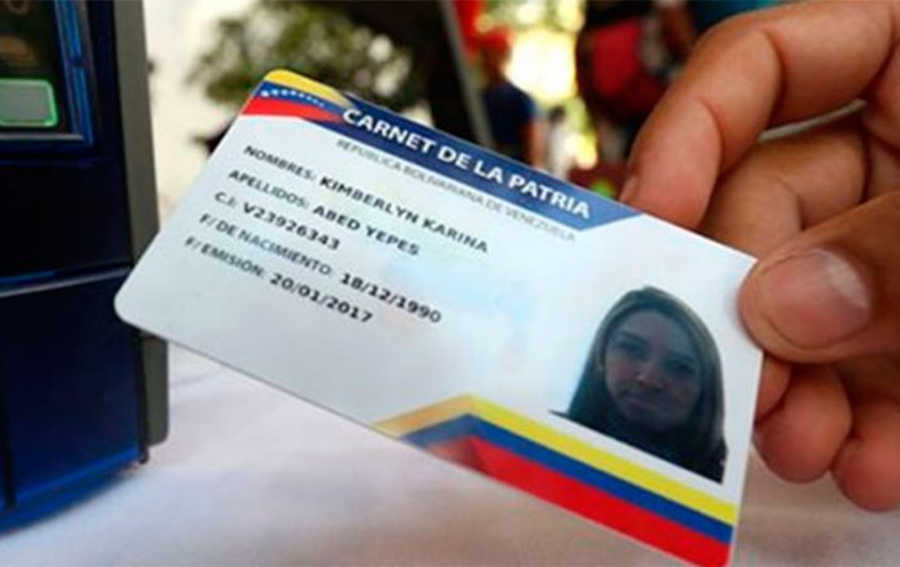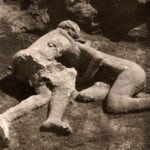 Movies and TV
Movies and TV  Movies and TV
Movies and TV  History
History 10 Momentous Events That Also Occurred on July 4th
 Animals
Animals 10 Times Desperate Animals Asked People for Help… and Got It
 Movies and TV
Movies and TV 10 Movie Flops That Found Their Way to Cult Classic Status
 History
History 10 Things You Never Knew About Presidential First Ladies
 Movies and TV
Movies and TV 10 Zombie Movies That Will Actually Terrify You
 Humans
Humans 10 Times Scientists Were Absolutely Sure… and Absolutely Wrong
 Our World
Our World 10 Pivotal Moments for Life on Earth
 Movies and TV
Movies and TV 10 Most Realistic Medical TV Shows of All Time
 Creepy
Creepy 10 Eerie & Mysterious Ghosts of the Pacific Coast
 Movies and TV
Movies and TV 10 Music Biopics That Actually Got It Right
 History
History 10 Momentous Events That Also Occurred on July 4th
 Animals
Animals 10 Times Desperate Animals Asked People for Help… and Got It
Who's Behind Listverse?

Jamie Frater
Head Editor
Jamie founded Listverse due to an insatiable desire to share fascinating, obscure, and bizarre facts. He has been a guest speaker on numerous national radio and television stations and is a five time published author.
More About Us Movies and TV
Movies and TV 10 Movie Flops That Found Their Way to Cult Classic Status
 History
History 10 Things You Never Knew About Presidential First Ladies
 Movies and TV
Movies and TV 10 Zombie Movies That Will Actually Terrify You
 Humans
Humans 10 Times Scientists Were Absolutely Sure… and Absolutely Wrong
 Our World
Our World 10 Pivotal Moments for Life on Earth
 Movies and TV
Movies and TV 10 Most Realistic Medical TV Shows of All Time
 Creepy
Creepy 10 Eerie & Mysterious Ghosts of the Pacific Coast
Top 10 Miseries Of Venezuela’s Ongoing Dystopian Nightmare
Venezuela remains a case study for economists and world leaders over how not to run a country. The petrostate became almost exclusively reliant on its vast oil reserves, all but abandoning manufacturing and agriculture. Four terms under the Socialist Party leader Hugo Chavez saw Venezuela edge towards economic and social ruin. Chavez billed himself as the champion of the poor, pumping exorbitant sums of money into food, housing, and healthcare subsidies. The revolutionist nationalized key industries, redistributed farmland to peasants, and imposed strict price controls on goods. The legacy of these decisions soon came to pass, following the ruler’s demise in 2012.
Elected in 2013, Nicolas Maduro vowed to continue his predecessor’s Chavismo policies. But the subsequent nosedive in oil prices sent Venezuela’s fragile economy into a tailspin. Maduro’s solutions – money printing and further price controls – were a recipe for disaster. Unemployment soared. Citizens starved in the streets. Parents were forced to give away their children to wealthier neighbors. And waves of electrical blackouts left hospitals and businesses in utter disarray. Venezuela’s 46th president now presides over a broken country, one that has topped the global Misery Index for five years straight.
Maduro rules the capital, Caracas, with an iron fist, quelling public protests with military might and arresting opposition officials. He blames Venezuela’s decline on capitalist countries, particularly the United States, and refuses to step down from power. Here, we explore Venezuela’s nightmarish descent into a socialist dystopia and what happens when the economic lifeblood of a nation runs dry.
10 Real Countries Straight Out Of The Handmaid’s Tale
10 ‘Kennels’ for Buses, Garbage Trucks for Ambulances
Practically every business has struggled to combat Venezuela’s unprecedented levels of inflation. While the country’s public transport infrastructure relies heavily on private companies, the skyrocketing price of vehicle parts has forced many to close. The absence of replacement engines, tires, and batteries has decimated bus companies, funneling huge numbers of commuters onto an already overstretched metro system. Caracas metro engineers now make repairs using the spare parts of damaged trains.[1] The scarcity of physical cash means fewer and fewer people can pay for tickets. And a shortage of paper has rendered the ticket machines inoperable. The capital’s main bus company, Colectivos del Norte, runs a crippled fleet of transport vehicles. Dozens of Colectivos buses, many nearing half-a-century old, now gather dust. Nationwide, hyperinflation has taken nearly 11,000 buses out of commission.
Dangerous solutions have emerged to replace the collapsed bus routes, with many desperate workers forced to travel via livestock trucks. Each of these “Kennels” – also known as dog cages (perreras) – transports dozens of commuters to work. “I’ve ridden on garbage trucks, dump trucks and trucks without roofs,” explained one hospital employee.
Meanwhile, crooks are selling Venezuela’s gas reserves on the black market, fetching handsome profits in neighboring Colombia. The resultant gas shortages mean that EMT workers struggle to fuel up their ambulances, and the sick often rely on alternative transport to reach hospitals. In one instance, an injured man was delivered to the Dr. Jesus Maria Casal Ramos hospital in a garbage truck.[2]
9 Panning Sewage for Gold
While Venezuelan officials have refused to release official unemployment statistics since 2016, the estimates look bleak. The International Monetary Fund puts the oil-rich nation’s unemployment at 44 percent, shadowing the levels seen in war-torn Bosnia in 1996.[3] For those lucky enough to find work, the minimum wage has plummeted to just $2 per month.
Some residents living in La California in Caracas have gone to extraordinary lengths to survive. In the slum city of Petare, residents scour a nearby sewer river for trinkets and small pieces of gold. Trudging through factory waste, the dejected masses find broken earrings, lost rings, and necklace links. “I don’t like doing it. But if I don’t, I don’t eat,” explained Luis, one of the Guaire River miners.[4] On a good day, the work pays dividends. Back in May 2019, a single gram of gold could fetch anywhere between 130,000 to 200,000 bolivares ($20—$30).
That same year, Caracas experienced a five-day electrical blackout. Water pumps were no longer operational, leading to a shortage of cooking and drinking water. Crowds of working class people used buckets and jugs to scoop up water from nearby storm drains and sewers. Unsurprisingly, the use of untreated water led to a dramatic increase in water-borne infections, and the subsequent uptick in diarrhea has caused a spike in infant mortality.
8 Hair Robberies & Bulletless Gangs
The Maduro government’s lax approach to law and order means crime has increased across the board in Venezuela. Kidnappings, muggings, murders, carjackings, and thefts have all soared in the last half-decade. But a new breed of criminal is starting to emerge.
Since 2013, an organized gang has been lopping off women’s hair in broad daylight. The hair thieves – known locally as “The Piranhas” (Las Piranas) – quickly surround and overwhelm their prey. They then pull the victim’s hair into a ponytail and use scissors to remove it. Fetching up to $800, the stolen locks are peddled to local hair salons and used to make wigs and extensions. “This is madness!” stated Luis Navas, a police inspector in northwestern Venezuela. “Now, on top of insecurity, kidnappings and food shortages, we’re also having to worry about our daughters and wives being victims of hair thieves.”[5]
But the criminal underworld is starting to feel the pinch, too. Many crooks are stealing food just to survive. Others have emigrated in search of legitimate employment. And the downturn means certain forms of violent crime are no longer economically viable. Even bullets are now a luxury for many gangs, as they are sold in precious U.S. dollars – not devalued bolivars. “If you empty your clip, you’re shooting off $15,” stated one gang leader. “You lose your pistol or the police take it and you’re throwing away $800.”[6]
7 Making Arts & Crafts Out of Devalued Currency
Venezuela’s economic turmoil has led to a sharp drop in the value of the Venezuelan bolivar. The economy took a further battering during the recent coronavirus pandemic, a situation worsened by the global collapse of oil prices. In May 2020, the currency fell to a new low of 200,000 bolivares to the American dollar. For perspective, 200,000 bolivares will buy you a single cup of coffee in Caracas.[7]
The Maduro government’s recent attempts to combat hyperinflation have involved peddling gold, oil, and drugs overseas in exchange for U.S. dollars. The ongoing dollarization of the Venezuelan economy means that most transactions are now made in dollars, euros, and cryptocurrencies. With the banks not offering dollar savings accounts, most traders have resorted to keeping wads of dollar bills under their mattresses. Simply put: the dollar is now the most valuable currency in anti-U.S. Venezuela.
Some enterprising citizens have taken full advantage of the devalued currency. Of the millions of Venezuelan migrants who fled the Chavez and Maduro regimes, many have set up street stalls across Colombia’s capital, Bogota. There, they use bolivares to make handbags, wallets, paper models, and other elaborate works of art. One couple paints famous faces on a range of bolivar notes, from the Mexican painter Frida Kahlo to Argentine soccer player Diego Maradona.
In the Venezuelan commerce city of San Cristobal, graphic designer José Luis León creates bolivar artwork based around popular movies, television shows, and comic books. He recently spoke about what inspires his work: “When I get a bill and turn it into art… it tells you the story of what this country is going through.”[8]
6 Eating Dogs, Flamingos, and Anteaters
Malnutrition is so common in Venezuela that most people go to bed hungry. Workers collapse from dehydration, hampering an already beleaguered economy. And anemic schoolchildren are often hospitalized. Food rationing, reductions in basic imports, aid blockades, and a total collapse in food production have all contributed to what is now a national catastrophe. Maduro quickly ceded control of food distribution to his corrupt military – a gift that was aimed at stopping a potential coup. Meanwhile, men, women, and children must fight for whatever food they can get, rummaging through garbage trucks, waste bins, and landfills. Venezuelans refer to this food poverty as the “Maduro diet.”
Researchers at the Zulia University in Maracaibo have discovered evidence that people are eating the local wildlife. Hungry Venezuelans have carved up flamingos and stolen their eggs.[9] Half-eaten corpses of giant anteaters litter the embankments of Lake Maracaibo. Workers at the city dump have found the skinned remains of cats, dogs, pigeons, donkeys, and horses. And one group of homeless children admitted to spending their days hunting lizards, parrots, chickens, and snails.
The situation is not much better for other species, with zoos across Venezuela home to emaciated animals. The Zulia Metropolitan Park admitted that its workers had been forced to slaughter their own pigs, goats, and ducks to feed other starving animals.[10] And several birds of prey attacked and ate one another. In 2018, the Attorney General’s Office shut the zoo down after images of half-dead lions, tigers, and pumas appeared on social media.
10 Terrifying Times Europe Recently Said “No” To Free Speech
5 Fingerprint Scanners at Grocery Stores

In 2015, the Maduro government ordered the installation of over 20,000 fingerprint scanners across major grocery stores.[11] The move was designed to stop citizens from hoarding food and selling them on the black market. At the height of Venezuela’s economic crisis, the resource-starved nation saw queues for loaves of bread and milk. Citizens slept in lines outside their local stores, only to discover rows of empty supermarket shelves. The hashtag #EmptyShelvesInVenezuela (#AnaquelesVaciosEnVenezuela) quickly spread across Twitter. And country-wide shortages of basic food and medicine provoked civil unrest.
The government has taken charge of many major supermarkets. In a bid to keep the price of food and fuel down, Maduro has countered spiraling levels of inflation with strict price controls. This initially led to Venezuelans smuggling price-controlled goods across the Colombian border and selling them at a profit. The crash in oil prices made matters worse, leaving Venezuela struggling to import food from overseas.
Citizens are now only permitted access to government-run stores twice a week, and each trip is registered using personal ID cards. Store clerks must enforce strict food quotas and investigate certain purchases. For example, couples who try to purchase diapers must present their baby’s birth certificate.[12] The government’s payment system records each shopper’s purchase history and uses this data to restrict the sale of certain goods. Transactions are completed using a fingerprint scanner, which creates a biometric link between a person and their shopping history. “This will be – like the fingerprint scan we use in our electoral system – a perfect anti-fraud system,” explained Maduro.[13]
4 Fatherland ID Cards

Venezuela introduced the Fatherland Card (Carnet de la Patria) in the run-up to the 2018 election cycle. Developed by the Chinese telecom company ZTE Corporation, the “smart ID” card was designed to provide Venezuelans with government-subsidized benefits, including cheaper healthcare and food. The Fatherland database stores a wealth of personal information, including the cardholder’s date of birth, address, income, medical history, social media presence, party political affiliation, and pet ownership details. Citizens can also use the Fatherland Card to cast their vote at the ballot box. Reports have surfaced of government officials spreading rumors that the state monitors how each person votes.
The system’s teething problems became painfully obvious when Maduro attempted to use his own Fatherland Card. When the former trade unionist cast his vote in the Constituent Assembly elections, live on air, the scanning machine read: “This person doesn’t exist.”[14] It turned out that hackers had gained access to the Fatherland servers and deleted Maduro’s account.
3 El Presidente: Speaks to the Dead, Tweets like a Bird
It is safe to say that Maduro has strong admiration for his predecessor, the late Hugo Chavez. The socialist ruler regularly invokes the spirit of Chavez to gin up his loyal supporters. During his first election campaign, back in 2013, Maduro told a rally “A bird was looking at me, and it started singing.” Maduro proceeded to mimic the bird, tweeting cheerfully. After the creature took flight, Maduro claimed he “felt the spirit and the blessings of Hugo Chavez for this [electoral] battle.” It appears Maduro was not being metaphorical. The little bird soon returned and told Maduro that Chavez was “happy and full of love for the loyalty of his people.”[15]
On another occasion, the mustachioed man claimed the spirit of Chavez had befriended Jesus Christ in heaven. Chavez, he claims, worked with Jesus to install Pope Francis, a Latin American, in the Vatican. At the International Book Fair in Caracas, Maduro mused over this revelation: “Something influenced the choice of a South American pope, someone new arrived at Christ’s side and said to him: ‘Well, it seems to us South America’s time has come.’”[16]
2 Free Sterilization Days
Many Venezuelans are too poor to form romantic partnerships, with condoms and contraceptive pills remaining an expensive luxury. A small pack of condoms can retail for $2 – more than the average worker can afford. Back in 2018, a 36-pack of condoms went for as much as $750. A general decline in sexual healthcare has led to a rise in unprotected sex, triggering a wave of teenage pregnancies and soaring STD transmission rates.
With traditional forms of contraception no longer viable, and the prospect of raising children a terrifying expense, women are turning to extreme measures. The state’s solution was to pioneer free “sterilization days” for the poor. In the early hours of the morning, women from the slums are bused into the center of Caracas to undergo sterilization. The service was initially only offered to impoverished women who had already given birth to four or more children. But Venezuela’s tanking economy increased the demand, causing waiting lists to balloon. Childless teens have even sought sterilizations from healthcare clinics. The 30-minute procedure, which involves sealing off the fallopian tubes, is difficult to reverse.[17]
Home abortions are also on the rise. Many women use a drug called misoprostol, typically found on the black market, to induce miscarriages. The predominately Roman Catholic nation punishes abortions with sentences of up to two years in prison. Despite the stigma, abortions are now one of the leading causes of mortality among Venezuelan women.
1 Grave-Robbing Cultists
Under the cover of darkness, vandals sneak into cemeteries and desecrate the graves of Venezuela’s dead. The grave robbers, emboldened by a shortage of security guards, dig up coffins and use sledgehammers to break open concrete mausoleums. The thieves search for expensive trinkets, bronze headstones, dental fillings, and skeletal remains.[18] Even the graves of former presidents, including Romulo Gallegos and Joaquin Castro, have been ransacked.
Human bones typically fetch around $20 a piece on the black market, with skulls fetching thousands of dollars each.The bones are used in witchcraft, a practice that has grown increasingly popular among the country’s superstitious, often poor, citizens. Venezuela’s creaking healthcare system is turning people away in their droves. In desperation, many turn to witch doctors for help with life-threatening ailments.
The bone trade has also revealed a new menace: the “shovel men.” These cultists place bones, sticks, and dirt in a cauldron (nganga) during their occult rituals.[19] Adherents of Palo, an Afro-Cuban religion, sometimes use the spirit energy harvested from these ceremonies to exact revenge on their enemies. Human bones are also snapped up on the black market by another cult, the Santeria. The Santeria use the remains during healing and initiation ceremonies. But local gangs have reacted angrily to the recent spate of grave robberies, hunting down and killing the culprits.
Top 10 Reasons Why Communism Sucks








